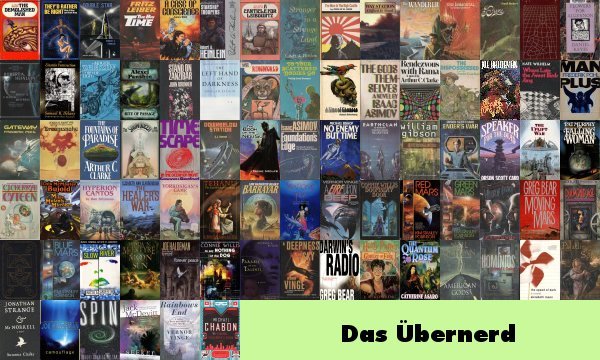 Astro City: Life in the Big City
Astro City: Life in the Big CityWritten by Kurt Busiek
Art by Brent Anderson
Covers by Alex Ross
1996 Eisner Winner for Best New Series
1996 Eisner Winner for Best Single Issue (#4)
1996 Eisner Winner for Best Cover Artist
Here's another one of those series that I'll be revisiting a few times. For four years in a row it continued to win awards. The format of Astro City means that covering all of the award winners in one go would be messy so I'm sticking to one trade paper back at a time.
Astro City is an anthology title. Each story shares the same setting: a metropolis like many others in comic books where a large number of super heroes live. And there is a huge cast of characters who occupy a kind of background tapestry wandering through different stories; occasionally they may step into the spot light but usually they just add some color to a scene. It's a pre-fab superhero universe for the most part built out of homages to existing characters. What ties it all together (and elevates Astro City above the crowd) is the unifying theme of the series: what everyday life would be like in a superhero universe.
A wonderful example of this is the first issue in which a Superman stand-in is too responsible to ever take a moment for himself. He spends his life dashing from one emergency to another as the ultimate workaholic driven by an inability to fail to save everyone he can. It's "With great power comes great responsibility" taken to its ultimate end.
And that's how the series goes. A newspaper reporter finds out what it takes to print the news when impossible things happen every day. A criminal stumbles onto a hero's secret identity and finds that it only brings more complications. An alien judges humanity by way of a blustering hero. Two busy heroes try to make some time for themselves and find it difficult to connect on a level other than as fellow superheroes.
The key here is that while the traditional superhero adventures are going on that's not what any of the stories are about. Typically the reader sees the start of a fight scene and the aftermath with very little of what occurs between.
The plotting in Astro City does rely on the reader having a general familiarity with comic book superhero tropes. It doesn't have to be a particularly deep set of knowledge but I couldn't imagine someone who didn't know superhero comics being able to connect with it. Things like signal devices and secret identities is about as thick as it gets. Busiek is playing with those broad concepts and how they affect people. Unlike some metatextual examinations of superheroes Astro City doesn't rely on homage or nostalgia and that makes it much more accessible to new comers even.
The fourth issue which won the Eisner for best single issue is actually my least favorite of the stories in this volume. That one centers on a woman from the bad part of Astro City where supernatural monsters dwell in the shadows and mystic forces stalk the streets. She commutes each day to the center of the city where the more typical superheroes hold sway but her family wants her to stay with her own kind. Busiek uses this story as a kind of bridge between more traditional fantasy and superheroes and in that aspect he is just as successful as he is with the themes in the rest of the stories. The conclusion, on the other hand, left a bitter taste in my mouth because of what I suspect is an unintended negative message portrayed in a positive way. It wasn't enough to make me dislike the story; it just made the last impression a bad one.
Brent Anderson struck me as an odd choice for handling the art work for the entire book. Not because his art is bad; he just has a scratchy, heavy style that seems out of place a lot of the time. Since Astro City is an anthology it makes me think that it would have been better served by having a rotating set of artists.
Anderson does create some striking images and has a terrific sense of design which he puts on display in the creation of the visual look of a huge cast of new superheroes. On top of that he captured the evolving style of some of the heroes who have been at it for decades.
I'm not going to say much about Alex Ross's covers since I like to have a larger sample size than six images before dissecting it. I will say that for the most part I liked the images he chose to represent the books (the cover to the first issue being an exception).
 As I mentioned when I started reviewing the Eisner winners there are a lot of winners which exist mainly to appeal to superhero comic fans, to play off the genre, and evoke a sense of nostalgia. Though Astro City fits into that self-referencing genre navel gazing it also does it very well and tells stories that take advantage of the genre. I can't call it the pinnacle of these books because Watchmen is already there. Second place to that work, on the other hand, isn't a bad spot to be in.
As I mentioned when I started reviewing the Eisner winners there are a lot of winners which exist mainly to appeal to superhero comic fans, to play off the genre, and evoke a sense of nostalgia. Though Astro City fits into that self-referencing genre navel gazing it also does it very well and tells stories that take advantage of the genre. I can't call it the pinnacle of these books because Watchmen is already there. Second place to that work, on the other hand, isn't a bad spot to be in.
